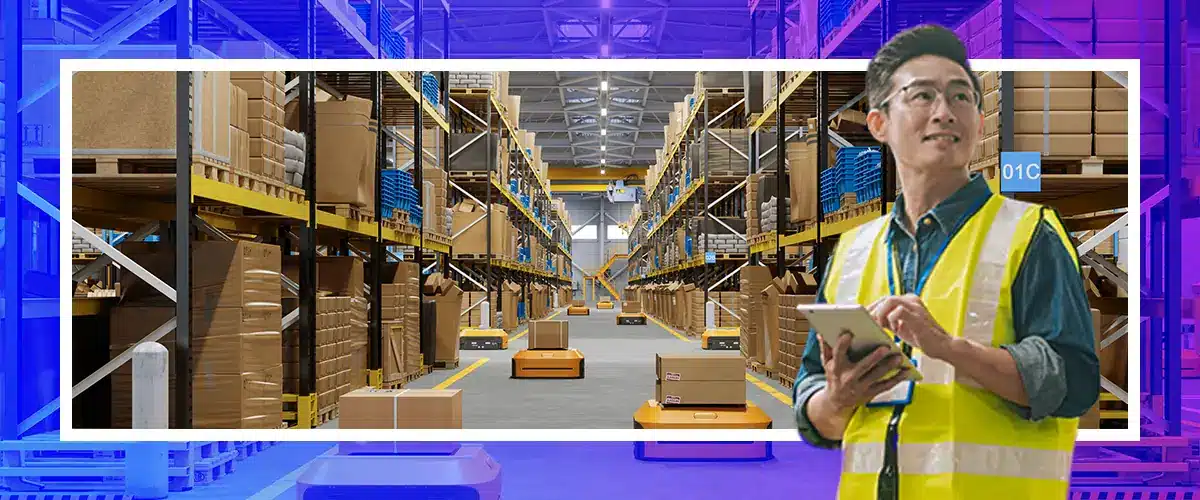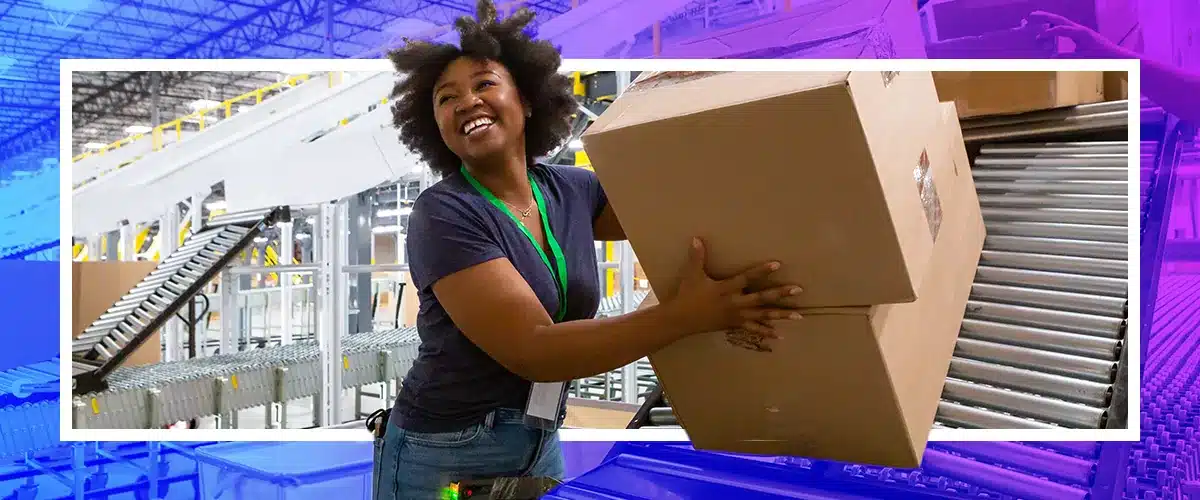One could argue that shipping logistics is now the most crucial aspect of high-volume DTC success. Why? Well, major ecommerce players like Amazon proved it was possible to ship items nationally in just 1-2 days for one thing. The average consumer now expects easy returns and a quick, corrective turnaround regardless of the size of a shipping warehouse, for another. And that’s only the beginning.
In the face of high expectations and accelerating ecommerce, automation has given businesses a way to save time and money, reduce the likelihood of returns, and improve client and customer satisfaction. This blog will discuss how smart shipping and automation technology can alleviate the challenges of DTC operations.
Contents
Shipping Logistics: The Modern Standard of Perfection
Every shipping warehouse understands the delicate balance between speed and accuracy. After all, getting orders to customers on-time is a major factor in customer satisfaction and business growth, but fast fulfillment must be accomplished without sacrificing accuracy or causing undue stress to your operations.
In addition, today’s perfect standard goes beyond speed and accuracy; it also requires the ability to offer free shipping, expedited deliveries (i.e. same-day and next-day arrivals), easy returns, and customer preferences (i.e. how many shipping boxes a consumer wants, eco-friendly options, type of packaging, delivery date, and tracking codes).
For your shipping warehouse to overcome these challenges and manage them consistently, you need the help of a top-tier warehouse management system (WMS).
Unlock a personalized tour of Logiwa IO
The Benefits of Smart Shipping
Modern cloud fulfillment platforms are designed to streamline workflows and attain competitive shipping standards. They do this through a smart shipping approach, a.k.a. utilizing operational data, AI-powered algorithms, and configurable automation rules within a WMS to execute optimized shipping logistics.
Here are the primary benefits of smart shipping and system automation for tackling your shipping logistics challenges, along with the features that make it possible.
Reduced Labor Hours and Faster Fulfillment
When it comes to meeting two-day, overnight, and same-day delivery goals, your shipping warehouse needs to cut down on processing time. Using smart shipping tools in your WMS, you can get orders out the door quicker than before.
- Your WMS can provide shipping box suggestions. In other words, it can choose the best box or mailer based on product dimensions, item fragility and customer order preferences. This saves time that might have otherwise been spent figuring out the best shipping box for an order or manually reviewing orders that require value-added services.
- Integrated cloud platforms can automatically create shipping labels and print them in bulk for identical orders for batch label generation. This tool can be beneficial when a seller is having a sale or promotion on certain items and saves your warehouse team from needlessly repeating the same pick runs.
- Eliminate slow, manual processes by defining rules for auto-printing labels within your WMS. This allows for the creation of optimized packing lists and custom forms, and it accelerates orders through packing onto the shipping stages in a fraction of the time.
If you are worried about the added cost of expedited shipments through your carriers, don’t be. According to Retail Touchpoints, as many as 88% of consumers are willing to cover the extra costs of same-day delivery services.
Lower Operational and Carrier Costs
Smart shipping includes features like rate shopping, which contribute to your ability to offer things like free shipping and custom preferences. And if you’re among the more than half of fulfillment businesses not using rate shopping, you could be costing your business and your 3PL clients thousands of dollars every year.
Rate shopping allows your shipping warehouse to reduce costs by finding the best shipment method and shipping price for each order instantaneously. Negotiating flat and discounted rates using standard package sizes, ensuring address correction, and simplifying DTC fulfillment order returns also become possible.
With these smart shipping and automation features, and a well-integrated WMS that connects with multiple shipping and freight suppliers, you can reduce your shipping costs and increase profits for both you, your customers, and the clients you serve.
Improved Order Accuracy and Fewer DTC Fulfillment Returns
According to the National Retail Federation, the average return rate on ecommerce orders in 2022 was 16.5%, amounting to $212 billion in returns. Processing returns is the most time-consuming part of DTC fulfillment, with no added value to your shipping warehouse, so minimizing their occurrence is imperative for reaching your operational goals and achieving fulfillment excellence.
As ecommerce demands grow alongside consumers’ desire for faster shipping, it can be tempting to pick, pack and ship at recklessly fast speeds. But with increased speed comes the increased risk of fulfillment errors, accidents, and stalls in operational efficiency.
Smart shipping and automation features in your WMS ensure the employees pick the correct items by verifying order details before you ship. When returns do happen, you can easily process them back into your inventory thanks to your system’s ability to automatically create return labels and leverage smart putaway algorithms. The data accumulated during returns can also improve your quality control reports, forecasting, and prevent future returns by rooting out their cause.
For more insights into smart shipping logistics, check out Logiwa’s QuickTake webinar, “Smart Shipping as Your Competitive Advantage.”
Shipping and Logistics with Logiwa WMS
Logiwa’s cloud fulfillment platform is a Tier-1 solution used by today’s top shipping warehouse operations. We designed our solution with the flexibility and robust capabilities to handle today’s most challenging DTC shipping and logistics challenges.
We help our clients automate their shipping operations with end-to-end fulfillment management capabilities, tailorable automation rules, and seamless integrations to major ecommerce and shipping providers. The best part? Businesses that choose our solution see a 8% decrease in shipping costs and are able to ship 3x as many orders in their first three months.
Learn more about our approach to smart shipping during your free consultation, and request a demo today.
Scale up B2C fulfillment operations with an integrated digital warehouse and fulfillment system
Warehouse Management
Modern digital WMS powers a modern fulfillment experience






